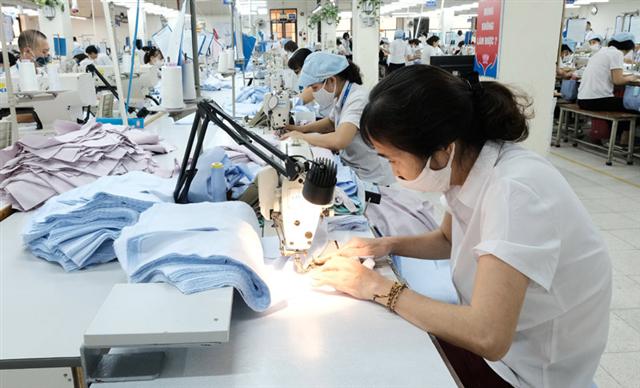Vietnam agriculture still weak ahead of landmark trade deal implementation: experts
Vietnam agriculture still weak ahead of landmark trade deal implementation: experts
Vietnam’s agricultural sector may not stand firm when the Trans-Pacific Partnership (TPP) free trade agreement takes effect given a sharp drop in both investment and economic value for the last 15 years, experts said at a seminar last week.

The TPP deal, which aims to liberalize commerce in 40 percent of the world's economy, was reached following five years of negotiations between 12 countries, including Australia, Brunei, Canada, Chile, Japan, Malaysia, Mexico, New Zealand, Peru, Singapore, the U.S. and Vietnam, during a final meeting in Atlanta on October 5.
Figures from the General Statistics Office (GSO) of Vietnam showed that the proportion of economic contribution of the agricultural sector, covering agriculture, forestry and fisheries, has declined steadily since 2000, Bui Trinh, an economist, said at the Agricultural Investment Forum in Ho Chi Minh City last Saturday.
Moreover, the pace of decline has quickened, from 24.53 percent to 19.3 percent in the 2000-05 period, then dropping to17.7 percent by the end of last year, Trinh said.
The investment in the sector also faces a similar fate, from 15 percent in 2005 to nine percent in 2014, while the rate set in the overall context of the Vietnamese economy should be at over 30 percent, he said.
"This suggests that agricultural investment in Vietnam is too low," Trinh added.
Meanwhile, according to Dr. Nguyen Do Anh Tuan, deputy director of the Institute of Policy and Strategy for Agriculture and Rural Development, state support for Vietnamese farmers is low against other countries in the region and the world.
Vietnam is among the world’s leaders when it comes to the export volumes of some agro-commodities, ranking from the first to the fifth positions, Tuan said, citing data from the Food and Agriculture Organization Corporate Statistical Database.
But in terms of value, Vietnam ranked only 5th and lower, meaning that the price of agricultural products in markets outside the country is low, which can be derived from the fact most Vietnamese agro-products are in raw form and have no brand, Dr. Tuan added.
According to the deputy director, the decline in recent agricultural growth, accompanied by declining investment amounts per hectare of agricultural land, is a challenge because Vietnam has utilized most of the land and labor for this sector.
Meanwhile, the number of public companies operating in this sector are very modest with limited efficiency, according to Bao Viet Securities Co.
There are only 20 listed agricultural businesses, whose market capitalization accounts for only three percent of the total, among over 700 listed enterprises, according to Bao Viet.
Deputy Minister of Agriculture and Rural Development Vu Van Tam acknowledged Vietnam's agricultural sector is facing many challenges in the process of global integration and declining growth, low competitiveness and inefficiency.
In particular, annual investment in agriculture accounts for 5.4 to 5.6 percent of total investment, while the proportion of enterprises investing in agriculture only makes up about one percent of the whole economy, which is a very low level, Deputy Minister Tam added.
In many export markets, Vietnam's agricultural products achieve high standards, meeting the discerning demands of many developing countries. However, in the domestic market, many agricultural products have yet to meet basic standards of food safety.
In this climate, when the TPP is ratified, agricultural products in Vietnam may lose their domestic market to foreign rivals, Deputy Minister Tam warned.
The party countries are expected to officially sign the deal no later than the end of the first quarter of next year, after which their legislatures will begin the ratification process.
Vietnam's lawmaking National Assembly could start considering the pact in mid-2016, according to The Saigon Times Online.
Given many indicators of the fragility of Vietnam's agriculture sector, former commerce minister and economic adviser Truong Dinh Tuyen stressed that agriculture should be repositioned as the national “food and foodstuff production industry,” not just a traditional sector.
It should be developed based on comparative advantages in accordance with top-notch standards, concentrating on large-scale projects applying new technology and machinery to survive tough competition brought in by the TPP, Tuyen said.
The challenge ahead is to ensure food hygiene and safety and preserve the environment, Tuyen asserted.





















